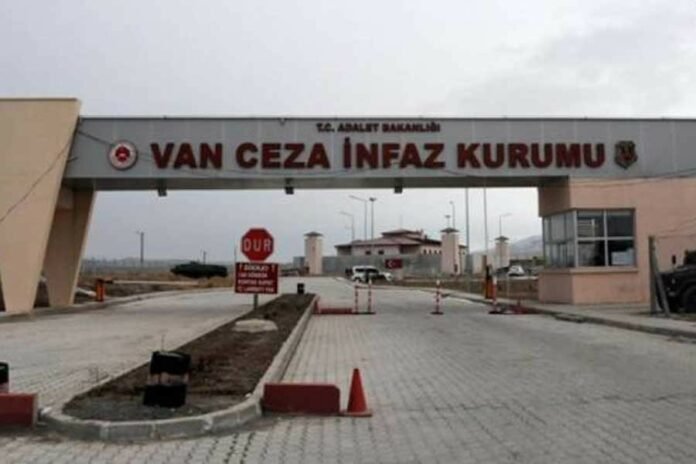In a letter to pro-Kurdish Peoples’ Democratic Party (HDP) deputy Gülistan Kılıç Koçyiğit, female inmates at Van’s T-Type Prison complained of unlawful bans on Kurdish publications, handwritten notes in Kurdish and other irregularities, the Duvar news website reported.
Thirteen female inmates in the Van prison wrote a letter to Koçyiğit, a member of parliament’s Human Rights Committee, listing rights violations and grievances.
According to the letter the prison authorities do not allow inmates to buy books from the outside. When they objected to the ban, the warden told the inmates not to read books. Kurdish novels and poetry books in particular are not allowed and are confiscated from inmates although they are not among the banned publications. The notebooks of inmates written in Kurdish are also confiscated on the grounds that there is no translator to monitor their content.
Prohibitions against the use of Kurdish in Turkey go back many years. Kurdish language, clothing, folklore and names had been banned since 1937. The words “Kurds,” “Kurdistan” and “Kurdish” were among those officially prohibited. After a military coup in 1980, speaking Kurdish was officially forbidden even in private life.
Many people who spoke, broadcast or sang in Kurdish were imprisoned. The ban officially continued until 1991. Kurds continue their struggle for Kurdish education in schools in the regions where they live. Between 2010 and 2014, when an attempt was made to solve Turkey’s Kurdish problem by means of an official “peace process” between the Turkish government and the outlawed Kurdistan Workers’ Party (PKK), lectures were given in Kurdish in some schools, and Kurdish signs were installed in the cities. These rights were revoked after the failure of the peace talks.
The PKK is an armed secessionist group considered a terrorist organization by the United States, Turkey and the European Union.
The inmates also said some problems in the prison have deepened with the pandemic and that even the most basic human rights are violated. “Requests for medical checkups are not met even for emergency cases, and doctor’s visits are scheduled arbitrarily,” they said, “Prison guards who are in contact with the outside constantly carry out searches in the wards. Hygiene supplies are not provided. Even the bleach we buy is restricted.”
Patient care in prisons has been drastically affected by the COVID-19 pandemic. Inmates who have been taken to the hospital are required to stay in a solitary quarantine cell for two weeks upon return. Recent post-mortem photos of an inmate, Mustafa Kabakçıoğlu, a former police chief who died under suspicious circumstances in a quarantine cell, show that these rooms are damp, filthy and neglected.
According to the Human Rights Association (İHD), there are about 1,605 sick prisoners in Turkish prisons, 604 of whom are critically ill. These numbers are rapidly increasing as the COVID-19 pandemic has been hitting overcrowded prisons the hardest.
Amnesty International and 26 other rights groups and civil society organizations from Turkey and around the world released a joint statement in March calling for the release of Turkey’s political prisoners, particularly those with a high risk of complications due to COVID-19, caused by the novel coronavirus.
















[…] Prohibitions against the use of Kurdish in Turkey go back many years. Kurdish language, clothing, folklore and names had been banned since 1937. The words “Kurds,” “Kurdistan” and “Kurdish” were among those officially prohibited. After a military coup in 1980, speaking Kurdish was officially forbidden even in private life. […]
[…] against the use of Kurdish in Turkey go back many years. Kurdish language, clothing, folklore and names had […]